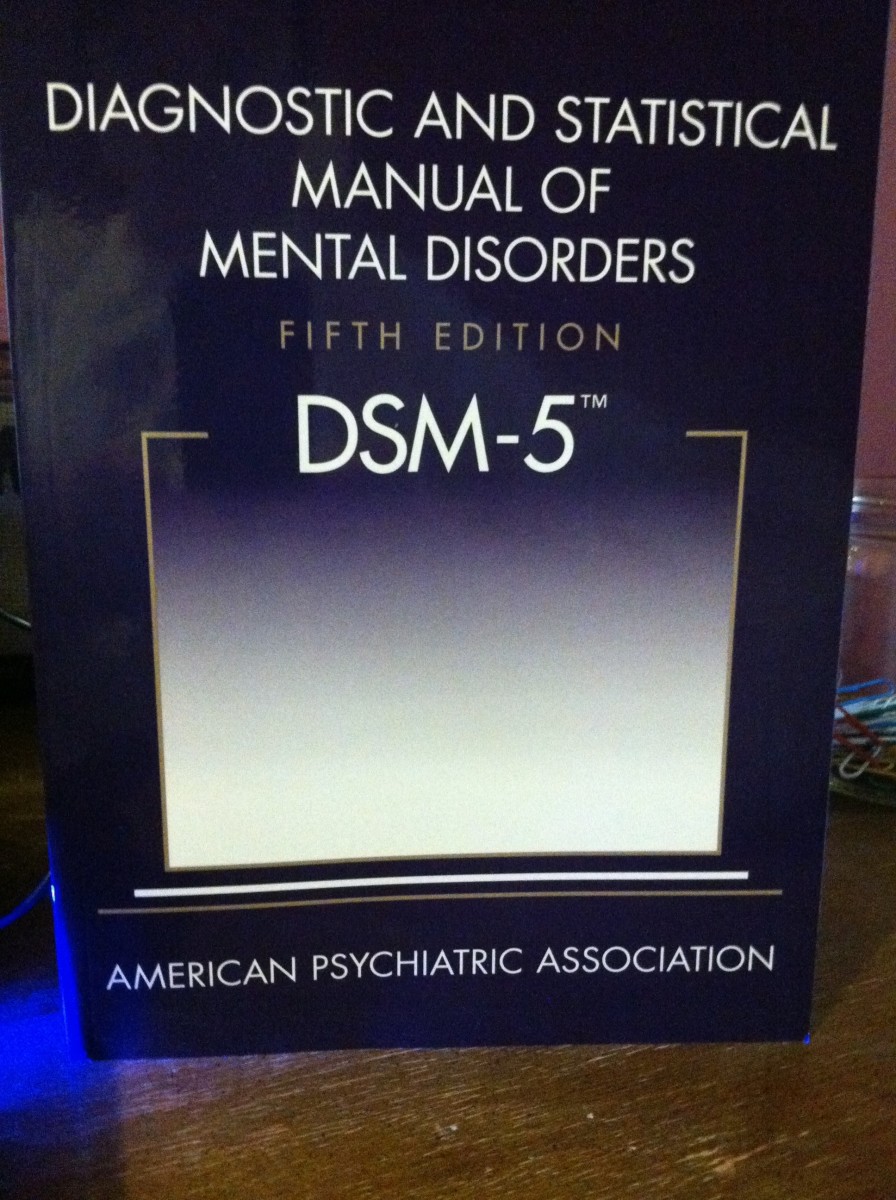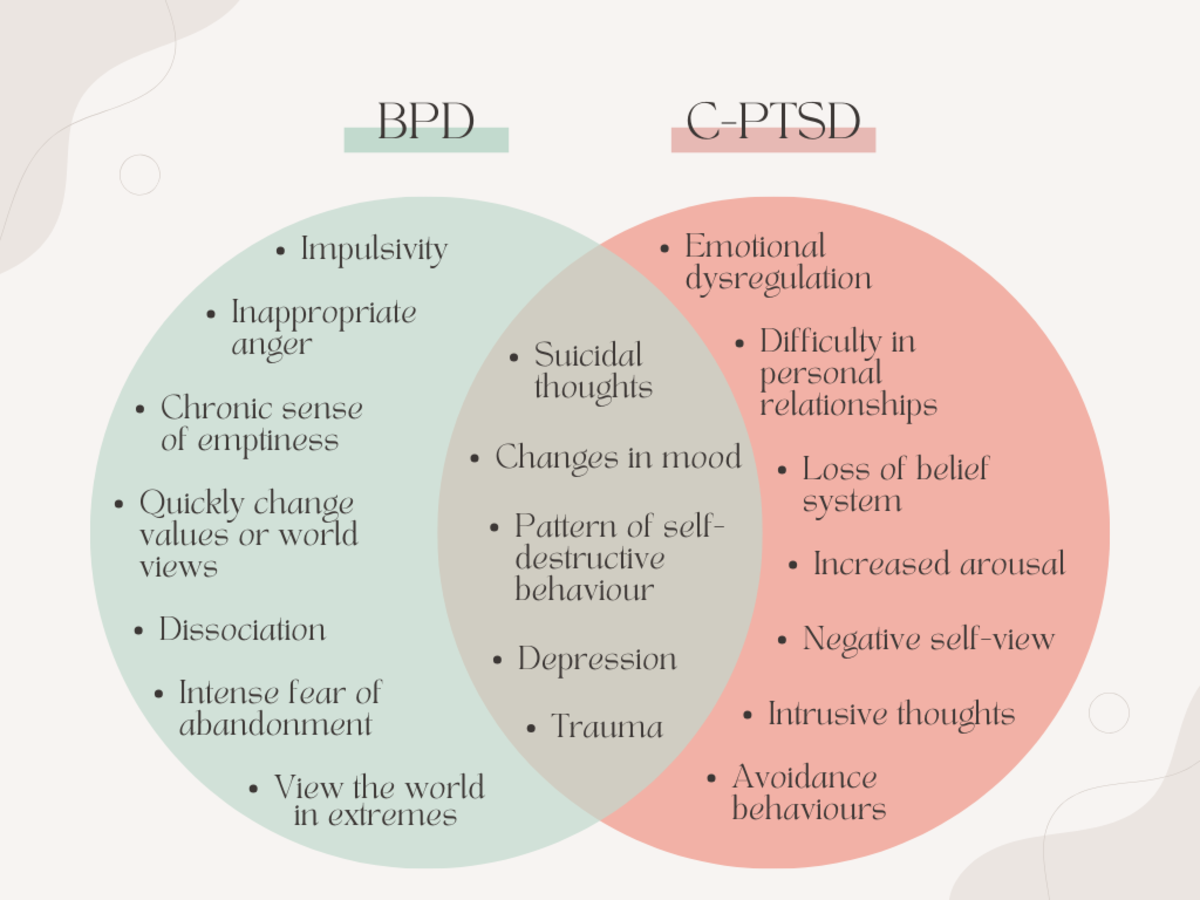Reclassifying Mental Disorders

Why Use Biomedical Markers to Classify Mental Disorders?
The National Institute of Mental Health is leading a crusade to reclassify mental disorders, and for good reasons. Current labels on the Diagnostical and Statistical Manual (DSM) are based primarily on observable behavior and do not reflect scientific research from recent years. Many symptoms cut across labels and categories, and many people fall into a blurry 'syndrome mix'.
Moreover, there is increasing evidence that symptoms that seem similar on the surface may have very different causes. For instance, some children diagnosed with autistic disorder have an identified genetic mutation such as Fragile X or Noonan's Syndrome, while others are idiopathic or appear to result from a cascade of genetic influences. More importantly, symptoms that appear similar may reflect very different neurological and psychological causes, and may require different treatment. Those repetitive motor behaviors associated with autism? They may reflect a massively overstimulated neural system -- or a massively understimulated one.
But what does this mean to the lay person? It means that you -- or your loved one -- may get the wrong treatment. Dr. Raquel Gur makes this point very eloquently: "The DSM is experts in the field that get together and reach a consensus. The brain doesn't know about this, right? So the brain is very complex and sometimes when we categorize and we don't consider the brain from a biological perspective, that you can't divide it like that, we can miss important information."
I don't want too come down to hard on the current version of the DSM diagnosis manual, because it came into being for a reason. Psychiatrists wanted labels to be standardized and reliable, and neuroscience was in its infancy. Classifying people based on subjective opinions about motivation and psyche seemed unreliable and unscientific. However, our knowledge of neurobiology is growing at an incredible rate -- how can we really help people if we don't take advantage of it?
On this page, you will find information about the new NIMH RDoC (Research Domain Criteria) project as well as the DSM and other issues regarding classification of mental disorders.

Borderline Personality Disorder: Illustrating the Need For Diagnostic Change
Currently, borderline personality disorder -- or emotional dysregulation disorder as it is sometimes called -- is an arguably vague diagnosis. Critics have gone so far as to call it a "garbage pail diagnosis" for people who are difficult to label and difficult to treat. It is diagnosed when a person scores at least 5 out of 9 on a list of symptoms, most of which describe unstable and potentially dangerous behaviors.
There are proposed revisions to the diagnosis; these changes include 'scoring' people on a scale of 1-5, as opposed to checking off symptoms in a yes-no format. The current proposals fall short of the sweeping change many people want. Some groups have advocated that it be reclassified as a mood disorder, akin to bipolar disorder, while others have said that the core feature is dissociation and that it more closely resembles dissociative identity disorder.
My belief is that one sees some of the same clusters of behaviors for a variety of reasons: Sometimes there's obvious dissociation, other times a mood imbalance -- other times the behaviors may simply reflect maladaptive behavior strategies.Science provides evidence that the BPD label has been applied to a heterogeneous group of people. Take the stress hormone cortisol as an example: Most people show a rise in cortisol levels in response to stressors. It appears that subgroups of people with the BPD show blunted cortisol responses ( a drop or failure to rise) while others show a steep incline. (Other groups that have shown 'blunted cortisol resonse' in studies: nursing mothers, males with antisocial disorder, and people with OCD. Hmmm...)
NIMH Research Domain Criteria (RDoC) - New Options? New Hope?
NIMH has long been a leader in research and advocacy. Their new RDoC program (Research Domain Criteria) is ambitious. The aim: to use biogenetic markers -- genetics as well as actual maps of brain circuitry -- to inform mental disorder classification. NIMH emphasizes that they're not trying to replace the current diagnosis system, but to complement it. It will be interesting to see what results their studies yield in the coming months and years.
- NIMH RDoC
Introduction to the NIMH's new program, which aims to reclassify mental illness using biogenetic markers. - A Therapist's Perspective
A therapist recounts recent research in neuroscience and calls RDoC a first step in the spirit of a long journey. - International Psychoanalysis
A very well articulated article about the need for change. - A well expressed rationale
On The Neurocritic blog.
Current Model: The DSM and its Proposed Changes
The DSM or Diagnostic and Statistical Manual of Mental Disorders is the most widely used diagnostic in the US and many other parts of the world. There have been four major revisions since its inception in 1952. The DSM-III and DSM-IV have stressed classification on the basis of observable behavior as opposed to speculation about causation.
The DSM-5 is scheduled for publication in 2013. Current proposals include doing away with the axis system, redefining the term 'personality disorder', and subsuming Asperger's and other autism spectrum disorders under the single diagnosis "autistic disorder". Some, however, feel that the proposed changes don't go far enough in changing mental health classifications.
- DSM 5 Development Website
Find out about proposed DSM changes.
Two Projects for Reclassifying Mental Disorders
Which do you find more promising -- the DSM-5 or the RDoC?
Neuroscience and Philosophy?
- Neuroimaging Redefines Mental Illness
As psychiatry becomes increasingly a matter of brain science, does it complicate our ideas of free will?
Credits
- Thoughtful man
FreeDigitalPhotos -- djcodrin - Smoker
FreeDigitalPhotos
Coming in May 2013; The DSM V
Share them here.






